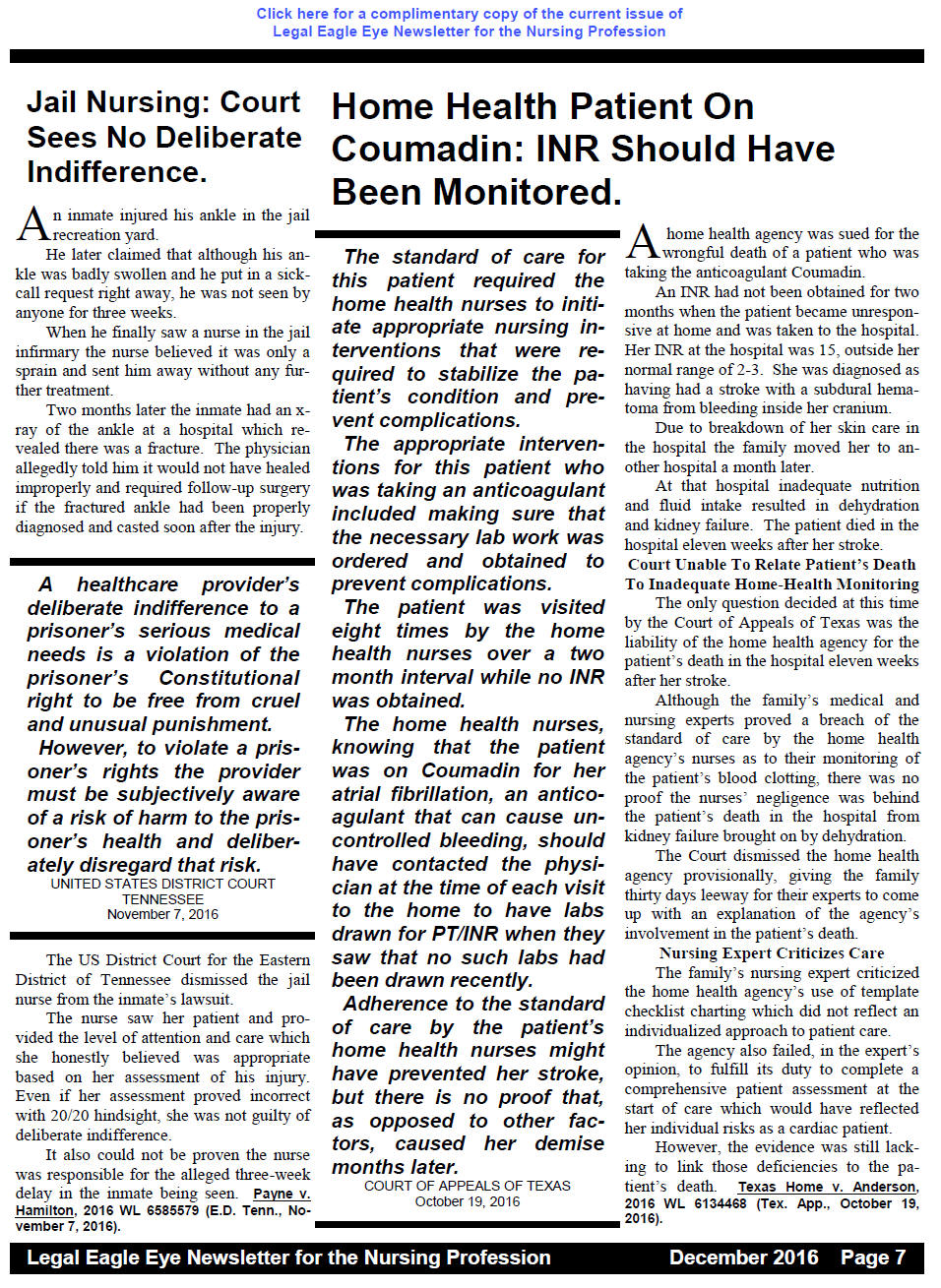
The standard of care for this patient required the home health nurses to initiate appropriate nursing interventions that were required to stabilize the patients condition and prevent complications. The appropriate interventions for this patient who was taking an anticoagulant included making sure that the necessary lab work was ordered and obtained to prevent complications.
The patient was visited eight times by the home health nurses over a two month interval while no INR was obtained. The home health nurses, knowing that the patient was on Coumadin for her atrial fibrillation, an anticoagulant that can cause uncontrolled bleeding, should have contacted the physician at the time of each visit to the home to have labs drawn for PT/INR when they saw that no such labs had been drawn recently. Adherence to the standard of care by the patient's home health nurses might have prevented her stroke, but there is no proof that, as opposed to other factors, caused her demise months later.
COURT OF APPEALS OF TEXAS October 19, 2016A home health agency was sued for the wrongful death of a patient who was taking the anticoagulant Coumadin. An INR had not been obtained for two months when the patient became unresponsive at home and was taken to the hospital.
Her INR at the hospital was 15, outside her normal range of 2-3. She was diagnosed as having had a stroke with a subdural hematoma from bleeding inside her cranium.
Due to breakdown of her skin care in the hospital the family moved her to another hospital a month later. At that hospital inadequate nutrition and fluid intake resulted in dehydration and kidney failure. The patient died in the hospital eleven weeks after her stroke.
The only question decided at this time by the Court of Appeals of Texas was the liability of the home health agency for the patient's death in the hospital eleven weeks after her stroke. Although the familys medical and nursing experts proved a breach of the standard of care by the home health agencys nurses as to their monitoring of the patient's blood clotting, there was no proof the nurses negligence was behind the patients death in the hospital from kidney failure brought on by dehydration.
The Court dismissed the home health agency provisionally, giving the family thirty days leeway for their experts to come up with an explanation of the agencys involvement in the patient's death. The familys nursing expert criticized the home health agencys use of template checklist charting which did not reflect an individualized approach to patient care. The agency also failed, in the experts opinion, to fulfill its duty to complete a comprehensive patient assessment at the start of care which would have reflected her individual risks as a cardiac patient. However, the evidence was still lacking to link those deficiencies to the patients death.
Home v. Anderson, 2016 WL 6134468 (Tex. App., October 19, 2016).